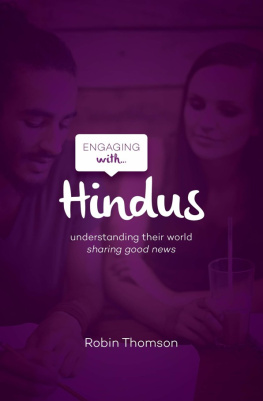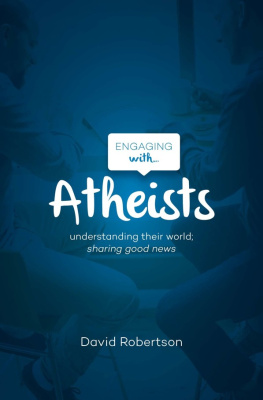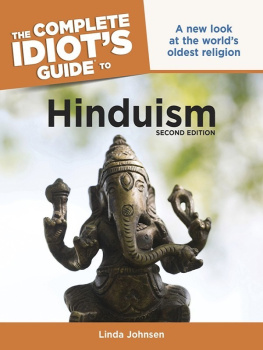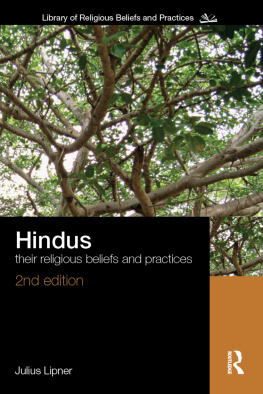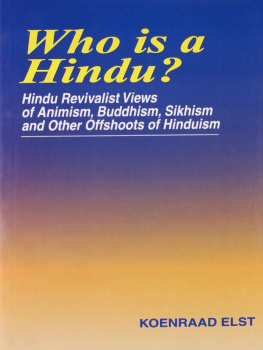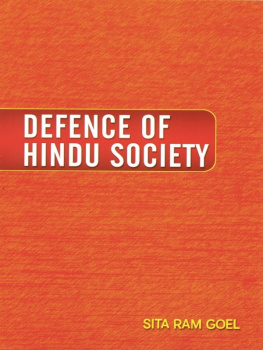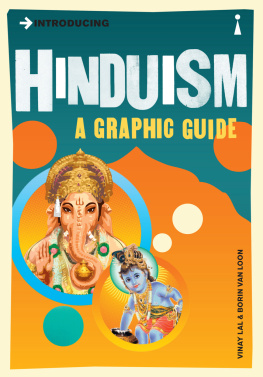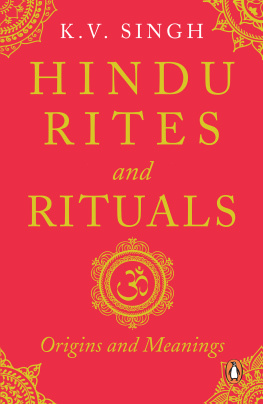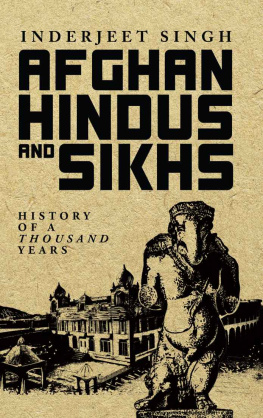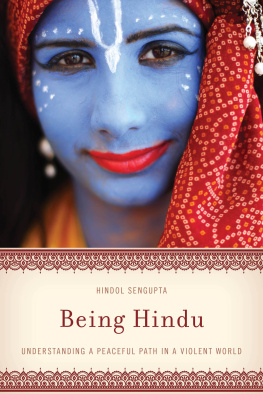This book is based on what I have learned from many othersboth Hindu and Christiantoo many to mention here.
In preparing this I am grateful for support and constructive feedback from Hindu and Christian friends:
Raju Abraham, Ram Gidoomal, Prabhu Guptara, Matthew Irvine, Deepak Mahtani, Sunil Raheja, Manoj Raithatha, Kumar Rajagopalan, Charmaine Rasiah, Basil Scott, Jagdish Sharma, Satish Sharma, Suneel Shivdasani.
Chapter one
A global faith
1. A global faith
Hindus are the worlds third largest religious community, with increasing influence on every aspect of life. Politicians, film stars and royalty consult their astrologers or their gurus. People often talk about karma .
Management consultants (the new gurus) tell chief executives to unlock the potential of the Self within, while some recommend Transcendental Meditation to relieve stress and clear the mind.
Yoga is everywhere. Doctors have begun using it to help people with asthma, arthritis or high blood pressure. Health authorities are looking seriously at the ancient Ayurvedic health system of India to see what insights might be helpful to our modern lifestyle.
Recent surveys show that increasing numbers in the West believe in reincarnation.
The New Age movement is a rainbow of beliefs and practices, but its philosophical foundations are essentially Hindu, along with ideas from Buddhism and other Eastern religions. It incorporates Hindu spiritual disciplines like meditation, yoga, and channelling occult powers.
The Hindus you meet could be doctors, pharmacists, IT professionals, business people, shopkeepers, call-centre workers, media people, your neighbours, colleagues or friends. You may have seen devotees of Krishna dancing and singing in the streets.
On the big screen, you might have seen Hindus or the influence of Hindu ideas in Life of Pi , Slumdog Millionaire , Eat Pray Love or The Best Exotic Marigold Hotel .
According to C. S. Lewis, the Hindu worldview is the major alternative to the biblical worldview.
But what is Hinduism?
You may have met Hindus or know them as friends, but still find it difficult to explain what Hinduism is.
Thats because Hinduism is so diverse. One scholar described it as probably the most varied and flexible religious system in the world. There is no founder. There is no figure like Buddha, Jesus, Confucius or Mohammed. There are libraries of scriptures and at least six major schools of philosophy.
Hindus hold widely different beliefs and follow widely different practices of spirituality and worship. Each Hindu you meet believes that their way is rightand the other is not wrong. You may feel you are grasping water, as you try to bring these ideas together. But what do you expect? your Hindu friend replies. How can you grasp God? All you can say is Not this, not that. Our quest for God takes us to the heights and depths of human spirituality. We have autonomy in belief. I will be glad to borrow your insights and way, and incorporate them into my own.
Hinduism contains many strands, developed over long periods of time and in different regions. The word Hindu was originally a geographical term, used by the Persians to describe the people of the Indus River region. Later Muslim invaders called the region Hindustan, the country of the people of Hind or Sind. In the 18th and 19th centuries the term Hinduism was coined to describe the religions, customs, culture and way of life of the peoples of India.
Scholars debate whether the word Hinduism has any meaning at all. Is it an artificial term, constructed by Europeans? Or is there an underlying unity? Some Hindus call it the worlds oldest religion, tracing it back thousands of years, or refer to the Sanatana Dharma , which could be translated the eternal religion.
Listen to this conversation:
I arrived in Mr. Patels home and we chatted in Gujarati for a while. I enquired about which satsang [religious gathering] he attended, his family and background. He spoke of his belief in his guru and their weekly meeting. Finally we switched to English for the benefit of my English friend. He asked what Mr. Patel believed and he responded I am a Hindu.
I was surprised. In four years of learning Gujarati, building friendships within the various Gujarati communities, visiting temples, I had never heard anyone refer to themselves as a Hindu. And yet, when confronted with a Westerner, an English person, Hindu became a useful label.
from 30 Days Prayer for Hindus
As this conversation illustrates, Hinduism has become a useful label for its adherents when facing the other world religions like Islam and Christianity, but many do not think of themselves as Hindu. For them, their community is important, worship of their gods is important, and living a good life is important.

